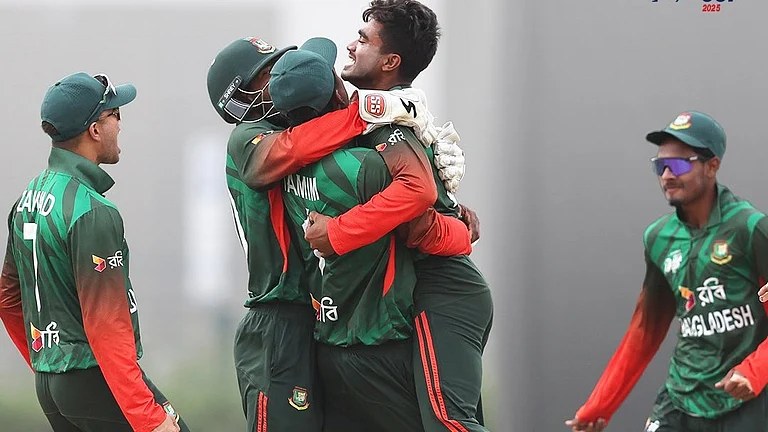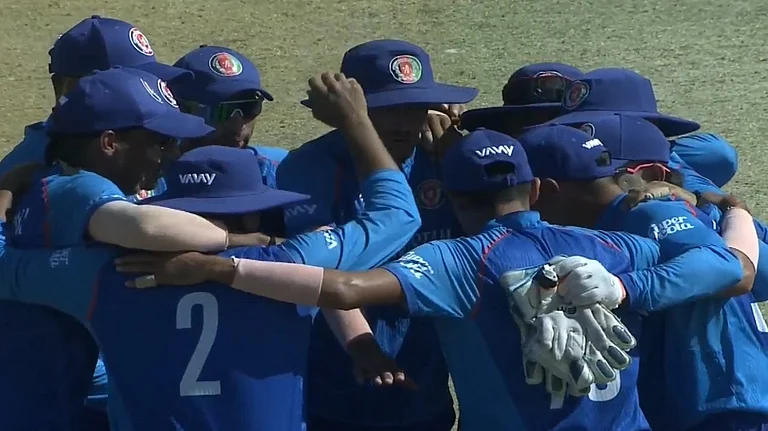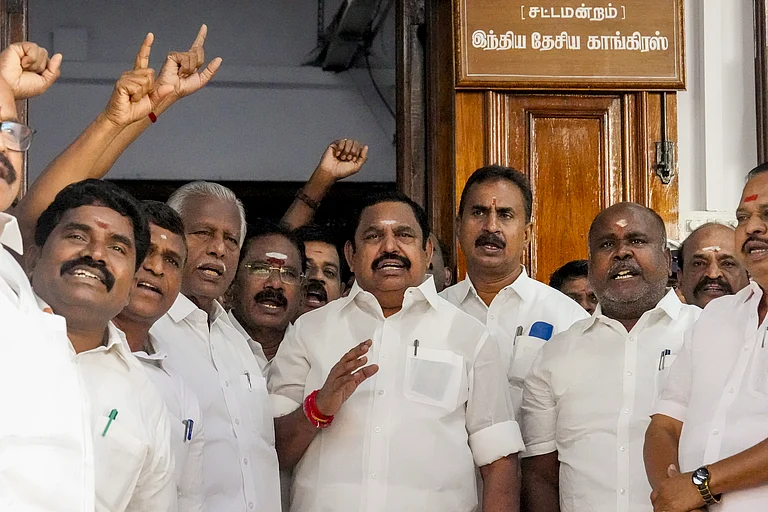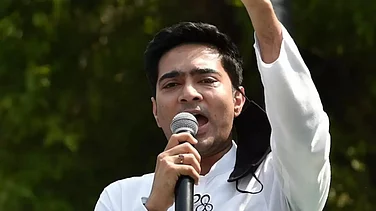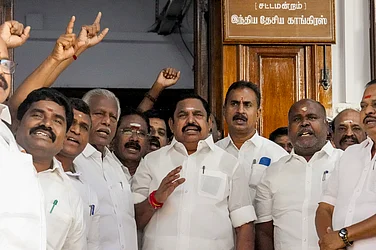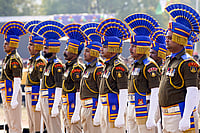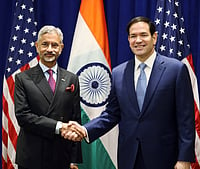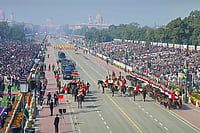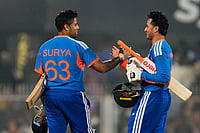He wanted to present me as a hardliner, as an uncompromising Hindu chauvinist and him -self as a healer and humanist, a progressive and liberal who would bring the political process to immediate fruition. I was shocked at his approach and tactics. In the process, he harmed me immensely. What is worse, he harmed the country a great deal." — Jagmohan on George Fernandes in his book My Frozen Turbulence in Kashmir in 1991
POLITICS makes for strange bedfellows. Fernandes and Jagmohan, the BJP candidate from New Delhi constituency, shared a common platform at an election rally on February 2, 1998, in New Delhi. And, surprise, surprise, the BJP manifesto released a day later unambiguously called for abrogation of Article 370 that gave special status to Jammu and Kashmir. Clearly, Jagmohan has prevailed over George on the vexed Kashmir issue.
The manifesto, however, has already attracted protests and cries of apprehension from the BJP's allies, who fancy themselves as a moderating influence. "We will oppose the BJP on issues related to Ayodhya, Kashi and Mathura," AIADMK's J. Jayalalitha asserted, adding her party wouldn't allow the BJP to deprive the minorities of their rights, an allusion to the proposed uniform civil code. And Lakshmi Parvathi refused to join the BJP and its allies at a rally in Delhi so as not to offend the sizeable number of Muslims in Andhra Pradesh.
It is significant that the 1998 manifesto is virtually an antithesis of the presidential address, drafted by the Vajpayee government, before the joint session of Parliament in May 1996. The address had put most contentious issues on the backburner.
Indeed, the allies are still charmed more by Vajpayee's projected 'moderate image' than by the compulsion of his having to act in accordance with RSS diktats. "Sonia Gandhi, by apologising for Operation Bluestar, is only shedding crocodile tears. Instead, we trust Vajpayee. We will give all 14 Punjab seats (that includes prime minister I.K. Gujral's) to Vajpayee," claims Punjab chief minister Parkash Singh Badal.
Like Fernandes, Badal believes in the relevance of anti-Congressism. "To the extent of fighting for public good and national security as well as against corruption, we have a unity of purpose with the BJP," says Fernandes.
In fact, what cements the allies is each party's compulsion in its respective areas of influence. In Haryana, Bansi Lal, who is pitted against the Congress' Bhajan Lal and the Devi Lal-Om Prakash Chautala duo, has only the BJP to fall back upon. In Punjab, to sell their social harmony plank Badal and his Akali Dal, which holds the Congress responsible for a 15-year-long spell of terrorism, needs the BJP, which draws its strength largely from the non-Sikh population.
In Tamil Nadu, after a soured relationship with the Congress, Jayalalitha's hope of participating in national governance hinges on an alliance with the BJP. For Lakshmi Parvathi, her tie-up with the BJP is the only chance of wreaking revenge on Chandrababu Naidu for betraying her husband N.T. Rama Rao.
In Bihar, Fernandes' Samata Party's main concern is its fight against Laloo Prasad Yadav, for which it is dependent on the BJP's support. And they profess full faith in their voice being given due consideration in the saffron scheme of things. "We are convinced that the BJP will take its allies into confidence even if it gets an absolute majority," says Fernandes.
But Vajpayee's predicament in the BJP could mean that Fernandes' optimism may once again be impractical. After all, he was in the forefront of the demand for the Jan Sangh's ouster from the Janata Party on the dual membership issue. The situation may not change this time around, but maybe the veteran socialist leader has.







